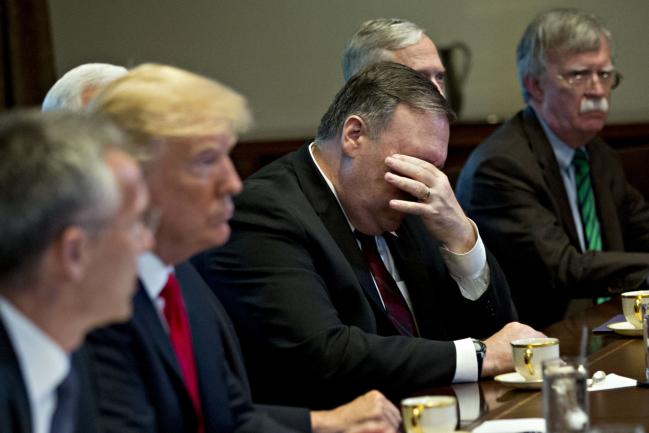(Bloomberg) -- The U.S. State Department’s top policy official insists President Donald Trump’s withdrawal from the Iran nuclear deal hasn’t strained ties with European allies -- even though European allies are saying it has.
“I think people are overstating the disagreements between the U.S. and Europe,” Brian Hook, the department’s director of policy planning, said on a conference call with reporters Friday. “We have a period of opportunity to work with our allies to try to come up with a new security architecture and a new framework.”
Hook spoke three days before Secretary of State Mike Pompeo is to give a speech outlining the new U.S. approach to Iran now that Trump has walked away from the 2015 accord, which sought to rein in Iran’s nuclear program in exchange for sanctions relief.
Trump made the decision over the pleading of the U.K., France and Germany, which were all parties to the deal and argued it was working. The U.S. move left European allies feeling jilted given that he also walked away from weeks of negotiations aimed at addressing Trump’s concerns. They decried the decision as Trump’s determination to fulfill a campaign promise even if doing so made no sense.
“Looking at the latest decisions of President Trump, some could even think: ‘With friends like that, who needs enemies?” European Union President Donald Tusk said May 16 in Sofia, Bulgaria. He said the EU is being forced to come to grips with the “capricious assertiveness” of the Trump administration.
The European Union has moved to activate a “blocking statute” that would forbid companies in the union “from complying with the extraterritorial effects of U.S. sanctions” on dealings with Iran that the U.S. is reviving and allow them to recover damages arising from American sanctions.
The U.S. had been working closely with allies to come up with a “new framework” to address both Iran’s nuclear ambitions and what the U.S. calls “the totality of Iran’s threats,” Hook said. Other concerns include proliferation, ballistic missile technology, supporting terrorists and fueling wars in Syria and Yemen.
“We agree with the Europeans on much much more than we disagree on,” Hook said. “We want to continue the momentum from our work with our European allies.”
